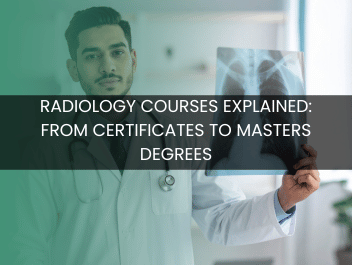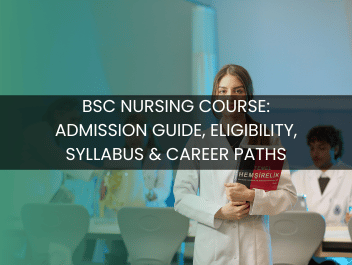
After PUC Which Course is Best for Aspiring Engineers? Explore Your Options!
In today's fast-paced world, choosing the right course after 2nd PUC is a pivotal decision for aspiring engineers. Post-University Course (PUC) serves as a critical juncture where students align their academic pursuits with future career aspirations. Understanding which courses after 2nd PUC can propel you into a successful engineering career is essential for making an informed decision.
The question "After PUC which course is best for aspiring engineers?" often echoes in the minds of young science enthusiasts ready to embark on their educational journey. With the vast array of engineering streams available, students must navigate their interests and strengths to select a course that offers both passion and practicality. Each engineering discipline from Computer to Chemical Engineering offers unique opportunities and challenges.
This article delves into the myriad of options available after PUC, exploring popular engineering streams, diverse career paths, and crucial admission processes. Whether you're intrigued by cutting-edge technology or fascinated by sustainable design, understanding the best courses after PUC for your engineering dreams is your first step towards a fulfilling career.
Table of Content
Introduction
Deciding on the best course after PUC can shape your career aspirations significantly. Students often wonder, "after puc which course is best?" The choice depends on your career goals, interests, and the wide range of options available. From Science Courses to Arts and Commerce, each stream offers unique career prospects. Here's a list of popular courses after 2nd PUC:
- Engineering – Ideal for those interested in software development and becoming software engineers. It's an excellent choice for science students with good analytical skills.
- Medicine – For those opting for the medical field, it requires entrance exams like NEET. A solid foundation in science stream subjects is crucial.
- Environmental Science and Agricultural Sciences – A growing field with diverse opportunities to protect and manage natural resources.
- Mass Communication – Perfect for creative individuals interested in media, offering a wide range of career opportunities.
- Hotel Management – A hands-on course for those aiming to enter the hospitality industry.
The courses after 12th from Indian universities offer a range of opportunities. With informed career choices, one can identify their interests and set clear career goals.
Understanding PUC and Its Importance
The Pre-University Course (PUC) plays a vital role in a student's academic journey in India. Completed after the 10th grade, PUC serves as a bridge between high school and higher education. It offers foundational knowledge for various fields.
Importance of PUC
- Solid Foundation: PUC sets the groundwork for
future studies, particularly in science, commerce, and arts streams.
- Career Opportunities: It opens a wide range of career options. Whether
you aspire to enter medicine, engineering, or mass communication, PUC is
essential.
- Eligibility Criteria: Completing PUC is a prerequisite for many
entrance exams, such as JEE Advanced.
- Career Goals: It helps students align their studies with career
aspirations and goals, ensuring a directed pathway into professional courses.
Popular Streams
- Science Stream: Focuses on PUC Science subjects like physics and biology. Ideal for career choices in medical, environmental, and agricultural sciences.
- Commerce Stream: Offers insights into economics and business management.
- Arts Stream: Includes humanities and social sciences for a broad career range.
In summary, PUC is crucial for shaping students’ futures by providing a comprehensive base for further studies and career aspirations.
Popular Engineering Streams
Engineering is a sought-after field for many students after 2nd PUC due to its wide range of opportunities and excellent career prospects. Students often ponder after PUC which course is best to pursue. Engineering streams cater to diverse interests and skills, providing a solid foundation for specialized career paths. Whether you're inclined towards computers, machinery, infrastructure, electricity, or chemicals, there are popular courses designed to meet your career goals. With a focus on specific disciplines, these streams open doors to varied career options and opportunities.
a) Computer Engineering
Computer Engineering is an ideal career option for those interested in technology and software development. This stream focuses on designing, testing, and developing computer systems and software. It combines computer science with electronic engineering, offering students a comprehensive understanding of both hardware and software aspects. The career prospects in this field are vast, ranging from software developers to network architects.
Students opting for this stream will learn vital programming languages, algorithms, and data structures. This knowledge provides a solid foundation for creating innovative software solutions. Additionally, courses like these are pivotal for students aspiring to become software engineers or IT specialists. In today's digital age, computer engineering graduates find opportunities in various sectors, including tech companies, financial institutions, and even healthcare.
b) Mechanical Engineering
Mechanical Engineering is a versatile field that delves into designing, analyzing, and manufacturing mechanical systems. It's an excellent choice for those fascinated by machinery and factories. The curriculum focuses on thermodynamics, materials science, and robotics, equipping students with a broad skill set.
This engineering stream is vital in industries such as automotive, aerospace, and energy. Students learn to design tools, engines, and machines, often leading to roles in product design and development. With the growing demand for innovation, mechanical engineers play a crucial role in environmental sustainability by developing eco-friendly technologies. Whether it's creating energy-efficient engines or cutting-edge robotics, mechanical engineering offers a plethora of career opportunities.
c) Civil Engineering
Civil Engineering is pivotal in designing and developing infrastructure projects, crucial for societal advancement. This stream focuses on planning, designing, and supervising the construction of roads, bridges, and buildings. Students learn about structural engineering, environmental science, and urban planning.
As cities grow, the demand for civil engineers continues to rise. They play a crucial role in creating sustainable and safe environments, enhancing community living. This stream is particularly appealing to those eager to make a tangible impact on the world by contributing to its infrastructure. Graduates find roles in government agencies, construction firms, and architectural companies, ensuring a stable career with a solid foundation in engineering principles.
d) Electrical Engineering
Electrical Engineering focuses on studying and applying electricity, electronics, and electromagnetism. This stream is essential for students interested in designing electrical circuits, and power generation and distribution systems. It provides a deep understanding of concepts like circuitry, control systems, and signal processing.
Electrical engineers are critical in various industries, including energy, telecommunications, and manufacturing. With the rise of renewable energy sources, there is an increasing need for engineers who can design efficient power systems. The versatility of this field offers graduates a range of options, from working in power plants to designing communication devices. Electrical engineering is a promising career, perfect for those focused on innovation and technological advancement.
e) Chemical Engineering
Chemical Engineering integrates physical sciences with life sciences and mathematics to process and produce useful products. It's a popular stream for those interested in chemistry and industrial processes. Students learn about chemical reactions, process engineering, and material science.
Chemical engineers work in various industries, including pharmaceuticals, petrochemicals, and food processing. They design and optimize processes for large-scale chemical manufacturing, ensuring efficiency and safety. This stream offers numerous career opportunities for those passionate about creating solutions for real-world problems, like developing sustainable materials or enhancing food preservation techniques. With a strong foundation in both chemistry and engineering, graduates can pursue a range of options in research, production, and development sectors.
Career Paths After Engineering
After completing an engineering degree, professionals are faced with numerous career paths. This diversity allows graduates to pursue opportunities that align with their career goals and aspirations. Understanding the available career paths can help engineers make informed decisions. Some popular options include core engineering jobs, IT and software development, and research and development. The choice largely depends on personal interest and career aspirations, but each path provides a solid foundation for success.
a) Core Engineering Jobs
Core engineering jobs are ideal for those passionate about working within their field of study. These positions often involve designing, developing, and maintaining systems or products. Engineers can choose to specialize in civil, mechanical, electrical, or chemical engineering, among others. Each specialization offers a wide range of opportunities, from infrastructure development to manufacturing processes. Core engineering roles provide excellent career opportunities for professionals who wish to apply their technical knowledge practically. These positions often require hands-on problem-solving and the ability to innovate.
b) IT and Software Development
For engineers interested in technology and programming, IT and software development offer a vibrant career option. These fields are particularly appealing to those with a knack for software design and development. As technology evolves, the demand for software engineers and developers continues to rise. Professionals in this field work on creating, testing, and maintaining software applications. A strong background in computer science and programming languages is crucial for success. Software development is an excellent choice for engineers seeking dynamic and fast-paced work environments where they can collaborate on innovative projects.
c) Research and Development
Research and development (R&D) is a rewarding path for engineers who enjoy exploring new ideas and advancing technological frontiers. This career path involves investigating new technologies and solutions and often requires a deep understanding of scientific principles. Engineers in R&D work in various industries, including pharmaceuticals, automotive, and environmental science. They focus on developing new products or improving existing ones, making substantial contributions to technological advancement. Choosing a career in R&D suits professionals inclined toward scientific inquiry and innovation, offering a solid foundation for continual learning and discovery.
Admission Procedures and Entrance Exams
Choosing the right path after PUC can significantly shape your future. If you're seeking higher education in a reputable institution, understanding admission procedures and entrance exams is crucial. These exams help gauge your eligibility and readiness for various courses after 2nd PUC. Each exam targets specific courses, forcing students to prepare effectively. Consider these exams as a gateway to a wide range of opportunities and career prospects. Let's explore two main types of entrance exams that have a substantial impact on your career aspirations and goals: JEE Main and Advanced, and state-level entrance exams.
a) JEE Main and Advanced
JEE Main and Advanced are among the most popular courses for science students aiming for a career in engineering and technology. JEE Main serves as the preliminary step and is primarily intended for admission into NITs, IIITs, and other centrally funded technical institutions. Those who clear the JEE Main are eligible to sit for JEE Advanced, which leads to admissions in prestigious Indian universities like the IITs. This exam focuses on the knowledge and understanding students have gained in 12th science, assessing their problem-solving abilities.
Being a challenging exam, JEE requires thorough preparation. It assesses students on subjects like Physics, Chemistry, and Mathematics. A good score in JEE Advanced can be an excellent choice for securing a solid foundation in the engineering field, opening doors to diversified career opportunities. This path is ideal for those envisioning a career as software developers or software engineers, providing a potential career option to work in innovative industries.
b) State-Level Entrance Exams
State-level entrance exams streamline access to regional educational institutions, making them a viable option for many students. These exams are specifically designed to cater to courses after 12th relating to engineering, medicine, and environmental science. Catering to students within specific states, these exams are crucial for those who wish to continue their education without leaving their home state, offering a range of options.
State-level exams often include diverse subject areas like agricultural sciences and mass communication. They facilitate admissions into state universities and colleges, providing a wide range of career choices. The exams differ in pattern and syllabus, but they typically revolve around subjects studied by science stream students during their PUC.
Eligibility criteria for state-level exams vary, but they generally require a certain percentage in your PUC exams. It’s important to plan ahead, considering preferred courses, and align them with the respective exams. Successful completion can lead to promising career opportunities, developing your career goals and ensuring a stepping stone to a fulfilling professional life.
Top Engineering Colleges in India
India offers a wide range of options for students aspiring to pursue a career in engineering. Choosing the right college is crucial for building a solid foundation in the field. Below are some of the top engineering colleges in India:
|
Rank |
College Name |
Location |
|
1 |
Indian Institute of Technology (IIT) Bombay |
Mumbai, Maharashtra |
|
2 |
Indian Institute of Technology (IIT) Delhi |
New Delhi |
|
3 |
Indian Institute of Technology (IIT) Madras |
Chennai, Tamil Nadu |
|
4 |
Indian Institute of Technology (IIT) Kanpur |
Kanpur, Uttar Pradesh |
|
5 |
Indian Institute of Technology (IIT) Kharagpur |
Kharagpur, West Bengal |
These colleges have excellent teaching faculties and cutting-edge research facilities. They offer a range of engineering specialties that align with diverse career aspirations. The entrance exams like JEE Advanced set a high standard, ensuring that only the best candidates gain admission.
For those exploring career opportunities in engineering, these institutions provide various career prospects post-graduation. Whether it's software development, environmental science, or agricultural sciences, students will find a suitable program to enhance their skills and meet career goals in the evolving tech landscape.
Future Trends in Engineering
Engineering continues to evolve rapidly as technology advances. The landscape is ever-changing, driven by innovations that bring about new career opportunities. Understanding future trends after PUC can help students decide which courses may best align with their career aspirations. These courses after 2nd PUC ensure students remain competitive in an increasingly tech-driven world. Students often wonder, "after PUC which course is best?" Exploring these emerging fields might hold the answer, providing a solid foundation for science students to achieve their career goals in diverse engineering domains.
a) Emerging Technologies
Emerging technologies are reshaping industries and opening up a wide range of career prospects. From artificial intelligence to quantum computing, these fields are at the forefront of innovation. For science students considering courses after 12th, venturing into these technologies can be a lucrative career option. Indian universities now offer specialized programs to train future software engineers and developers. This training equips them with the skills needed for the ever-evolving software development landscape and other advanced tech sectors.
In the realm of emerging technologies, artificial intelligence and robotics have gained immense popularity. These fields are transforming how industries operate, leading to increased demand for skilled professionals. Taking courses after 2nd PUC that focus on AI and robotics can offer students a competitive edge. Cloud computing and cybersecurity are also pivotal as they ensure data integrity and security in a digital age. Exploring these fields signifies an excellent choice for students looking to delve into the depths of technology.
b) Green Engineering
Green engineering is more than just a trend; it is a movement towards sustainable development. As climate change becomes a pressing global issue, the demand for eco-friendly solutions grows. For those wondering "after PUC which course is best," considering a career in green engineering could be worthwhile. This field focuses on designing products and systems that minimize environmental impact, offering ample career opportunities.
In green engineering, renewable energy technologies lead the charge. Wind, solar, and hydroelectric power are pivotal in reducing our carbon footprint. Courses after 2nd PUC in this sector focus on these technologies, providing science students with the tools necessary for a sustainable future. Moreover, sustainable construction practices incorporate eco-friendly materials and methods, further solidifying green engineering's role in modern society.
Implementing these practices in industries ensures not only global compliance but also financial savings. Thus, investing in a career in green engineering promises a range of opportunities. It aligns with environmental science and agricultural sciences, offering a holistic approach to addressing environmental challenges. Opting for this path post-PUC can position students at the forefront of the green revolution, making a significant impact on our planet's future.
Conclusion
Choosing a career path after PUC (Pre-University Course) can be challenging but crucial for future success. Often, students wonder: "after PUC, which course is best?" It largely depends on your interests and career aspirations. Science students have a wide range of options, from pursuing courses in the medical field to embarking on software development.
Popular courses after 2nd PUC include:
- Engineering (B.Tech/B.E.)
- Medical (MBBS/BDS/BAMS)
- Environmental and Agricultural Sciences
- Mass Communication
- Hotel Management
These courses align with various career goals, offering a solid foundation for the future. Indian universities provide diverse programs tailored to specific interests, whether in the science stream or beyond. Software engineers and developers are in high demand, making "Software developer" an excellent choice for those inclined towards technology.
Eligibility Criteria: Entrance exams such as JEE Advanced are crucial for engineering aspirants, while medical students should prepare for respective exams.
Ultimately, deciding on courses after 12th depends on individual preferences, but a wide range is available. Consider your career options carefully to find one that aligns best with your aspirations and offers promising career opportunities.
FAQs
Choosing a course after PUC (Pre-University Course) can be confusing. When it comes to engineering, many students ponder which path to take. Here, we answer common questions to ease your decision-making process and guide you toward a rewarding career in engineering. Understanding "after PUC which course is best" can set you on a promising path.
1. After PUC, which course is best for engineers?
After completing PUC, many students aspire to join engineering. Selecting the right field can lay a solid foundation for a successful career. Popular options include Mechanical Engineering, Electrical Engineering, and Computer Science Engineering. These courses are known for offering extensive career opportunities, making them an excellent choice for those inclined toward innovation and technology. Computer Science is particularly appealing for those interested in software development, ensuring a bright future as a software engineer. Consider your interests and aspirations to choose the best fit among the many courses after 2nd PUC.
2. What are the eligibility criteria for engineering courses?
To gain admission into engineering courses, students must meet specific eligibility criteria. Typically, candidates must have completed their 2nd PUC with a focus on the science stream, covering subjects like Physics, Chemistry, and Mathematics. A minimum score requirement may apply, depending on the college and course. Entrance exams like JEE Advanced are crucial for securing a spot in reputed institutions. Scoring well in these exams can significantly increase your chances of admission. Carefully review the specific criteria of each college to ensure you meet all necessary requirements.
3. How can I prepare for engineering entrance exams?
Preparing for engineering entrance exams requires dedication and a strategic approach. Start by understanding the exam pattern and syllabus thoroughly. Create a study plan that allocates ample time for each subject and topic. Practice regularly with mock tests to improve speed and accuracy. Many students find enrolling in coaching classes beneficial for structured guidance and expert tips. Also, self-study plays a crucial role in reinforcing concepts. Stay consistent and motivated throughout your preparation to excel in these exams and secure admission into your desired engineering course.
Looking For Job Satisfaction on the long run?
Please feel free to contact our experts
Call to ask any question
+91-9319336222Monday to Saturday
(9:00 AM to 8:00 PM)Resent Blogs
10 Things to Do During an Interview to Impress Your Future Employer
Learn MoreCrafting Your Personal Narrative: A Guide to Writing About Yourself
Learn MoreTop 10 Essential Interview Questions and Expert Answers for 2025
Learn MoreAce Your Next Interview: Essential Questions and Expert Answers for 2025
Learn MoreFirst-Time Manager Interview: Crucial Questions and Strategies for Success
Learn More150 Essential General Knowledge Questions for Interviews in 2025
Learn MoreMaster the Google Interview: Strategies for Success in 2025
Learn MoreHow Can You Describe Yourself Professionally? 5 Key Strategies You Need to Know
Learn MoreMastering the Art of How to Take Interview: Essential Techniques for Success
Learn More25 Essential HR Interview Questions and Answers PDF You Can't Ignore
Learn More7 Tips to Ace Your HR Screening Round and Land Your Dream Job
Learn More10 Essential Tips for Acing Your Interview Exam
Learn More5 Unique Interview Format Examples to Stand Out in Your Next Interview
Learn More5 Powerful Techniques for a Memorable Interview Introduction
Learn MoreMaster Your Next Interview with These Top Interview Preparation Apps
Learn MoreMastering the Art: Top Interview Questions for 12th Class Students
Learn More7 Must-Know Interview Questions for Freshers to Ace Your Job Hunt
Learn MoreMastering Interview Questions for HR Position with Answers: Strategies for Success
Learn More12 Essential Interview Questions for Recruiter Position You Should Prepare For
Learn More10 Must-Know Interview Questions UK Employers Love to Ask
Learn More10 Creative Interview Writing Examples to Spark Your Imagination
Learn More15 Essential Managerial Interview Questions for Freshers to Prepare
Learn More15 Unique Marketing Interview Questions You Haven't Prepared For
Learn More7 Key Strategies for a Successful Mock Interview Session
Learn MoreThe Ultimate Guide to Model Interview Questions: What You Need to Know
Learn More5 My Self Question Exercises to Unlock Your True Potential
Learn More10 Normal Questions That Can Spark Deep Conversations
Learn More15 Essential Personal Interview Questions for Freshers to Ace Your Next Job
Learn More10 Essential Phone Interview Questions You Can’t Afford to Ignore
Learn More15 Essential Sales Interview Questions and Answers for Freshers
Learn More7 Key Situational Interview Questions Every Employer Should Ask
Learn More15 Essential Software Developer HR Interview Questions You Need to Prepare For
Learn MoreMastering the Technical Interview: Essential Questions and Answers
Learn MoreTop Strategies for Responding to Tell Me About Yourself in a Student Interview
Learn MoreTop 10 Interview Questions and Expert Answers
Learn MoreMastering the Art of Interviewing: 50 Tough Questions and Smart Answers
Learn MoreHow to Ace Your Next Mock Interview: Tips and Strategies for Success
Learn MoreYour Ultimate Guide: 60 Insightful Questions to Ask Interviewers
Learn MoreCrafting the Perfect Response to Why Do You Want This Job?
Learn MoreUnique Ways to Tackle the Question Why Should We Hire You?
Learn MoreWhy Should We Hire You? - Top 10 Answers for Customer Service Roles
Learn MoreMastering the Art of Discussing Work Experience in Interviews
Learn MoreMastering Your Sales Interview: 50 Essential Questions and Answers
Learn MoreCareer Paths After 12th Commerce: Your Future Starts Here
Learn MoreExplore One-Year Courses After 12th for Non-Medical Students
Learn MoreQuick Career Paths: 2-Year Degree Courses After 12th for Fast-Track Success
Learn MoreComprehensive Guide: Courses After 12th Commerce
Learn MoreTop 10 Lucrative Courses to Consider After Completing Engineering
Learn MoreAdvancing Your Career: Top Choices After B.Tech in 2025
Learn MoreExplore Your Future: After CET Exam Which Course is Best for Aspiring Professionals?
Learn More5 Reasons Why After Inter CEC, Choosing the Right Course is Crucial
Learn MoreAfter PUC Which Course is Best for Aspiring Engineers? Explore Your Options!
Learn MoreUnlocking Your Future: Best Arts and Science Courses After 12th for 2025
Learn MoreWhy a Bachelor Degree in Commerce is Your Pathway to Success
Learn More15 Best Career Courses to Boost Your Earning Potential in 2025
Learn MoreEmerging Career Fields for 2025: What You Need to Know
Learn MoreExploring In-Demand Career Paths After 12th: Science, Arts, Commerce
Learn More15 Lucrative Science Careers You Should Consider
Learn MoreHigh-Paying Career Paths for Girls After 12th Commerce
Learn MoreTop 10 High Salary Career Courses After 12th Biology
Learn MoreTop 10 High-Paying BSc Specializations for 2025
Learn MoreExploring the Future: Innovative Career Paths for B.Tech Graduates in 2025
Learn MoreComprehensive Guide to B.Tech Specializations for MPC Graduates
Learn MoreUnlocking Your Potential: The Ultimate B Tech Job List for 2025
Learn MoreB.Tech Salary Insights: How Much Can You Earn Per Month?
Learn MoreEssential Business Courses After 12th: Your Guide to a Successful Career
Learn MoreHow Commerce Students Can Transition to BSc IT
Learn MoreExploring Career Paths After 12th: Your Guide to Success in 2025
Learn MoreCertainly! Here are 10 additional title ideas inspired by the list you provided
Learn MoreExploring Career Paths After Engineering: Your Guide to the Future
Learn MoreThe Ultimate Guide to Career Options Post-High School Graduation
Learn MoreDiscover the Top 10 Chemistry Courses After 12th That Lead to High-Paying Jobs
Learn MoreExplore the Best Diploma and Certificate Programs After 12th Commerce
Learn MoreCareer Paths for Computer Science Graduates: Top Opportunities to Explore
Learn MoreExplore Top Courses After 12th: Your Path in Science, Arts, or Commerce
Learn MoreTop 10 Courses After 12th Commerce for a Successful Career
Learn MoreTop Paying Professional Courses After 12th for Commerce Students
Learn MoreEmerging Career Paths After 12th Commerce Without Maths
Learn MoreExploring Career Paths After 12th Science: A Complete Guide
Learn MoreComprehensive Guide to Courses and Career Paths after 12th Grade
Learn MoreEmerging Career Paths in India: What to Expect in 2025
Learn MoreTop Diploma Paths for Students After Completing 12th Science
Learn MoreTop 15 Easiest High-Paying Jobs to Pursue in India by 2025
Learn MoreNavigating Your Future: Easy Degree Options After 12th
Learn MoreExploring Top Engineering Branches After 12th: A Comprehensive Guide
Learn MoreExploring Advanced Studies: Top Entrance Exams for Engineering Graduates
Learn MoreMBA Salary Insights: Top Packages and Compensation Trends in India
Learn MoreTop 15 Lucrative Careers in India for 2025
Learn MoreTop 10 High-Paying Jobs for Commerce Graduates Without Maths
Learn MoreTop 10 High Salary Courses After 12th PCB for Future Success
Learn MoreHigh-Earning Courses to Pursue After 12th Science in 2025
Learn MoreHigh Paying Career Paths for BiPC Students: Top 10 Courses to Consider
Learn MoreExploring High-Paying Engineering Degrees for the Future
Learn MoreExploring Integrated Courses After 12th: A Comprehensive Guide for Students
Learn MoreExploring Career Prospects: What Can You Do with a BBA Degree?
Learn MoreTop 15 In-Demand Professional Courses for Commerce Graduates in 2025
Learn MoreExploring Lucrative Job Paths for BBA Graduates in 2025
Learn MoreMBA Full Form Explained: Master of Business Administration & Its Strategic Career Value
Learn MoreBBA Full Form: The Definitive Guide to BBA Degrees, Admissions, & Career Paths
Learn MoreBCA Full Form Explained: Your Complete Guide to the Degree, Admission & Career Scope
Learn MoreIAS Full Form: Indian Administrative Service Explained & Its Pivotal Role
Learn MoreMBBS Full Form: Unraveling the Meaning Behind a Doctors Qualification
Learn MoreUPSC Full Form: Union Public Service Commission and Its Vital Role
Learn MoreBSc Full Form: Bachelor of Science & What It Means for Your Future
Learn MoreITI Full Form: What Exactly is Industrial Training Institute?
Learn MoreLLB Full Form: Your Ultimate Guide to Bachelor of Laws, Eligibility & Career Scope
Learn MoreIs There a True Computer Full Form? Unpacking the Popular Acronym
Learn MoreB.Tech Full Form Unpacked: Meaning, Scope, and Why It Matters for Your Career
Learn MoreIIT Full Form: Unveiling the Indian Institute of Technology and Its Legacy
Learn MoreMCA Full Form Revealed: Master of Computer Applications & Its Significance
Learn MoreIIT Full Form: Indian Institute of Technology – Understanding Its Legacy, Campuses, and Global Standing
Learn MoreYour Complete Guide to Becoming a Veterinarian: Education, Specialties & Career Paths
Learn MoreBSc Degree: Your Complete Guide to Courses, Careers, and Future Prospects
Learn MoreB.Com Full Form Unveiled: What Bachelor of Commerce Truly Means
Learn MoreBAMS Full Form: Bachelor of Ayurvedic Medicine and Surgery — Unpacking Its Meaning & Career Scope
Learn MoreWhat is a Polytechnic? Your Complete Guide to Courses, Admissions & Career Paths
Learn MoreSSC GD Constable Exam News 2025-26: Latest Updates on Vacancies, Dates & Application
Learn MoreHow to Choose the Best Veterinarian for Your Pet: A Comprehensive Guide
Learn MoreAir Hostess 2026: Your Complete Roadmap to Landing the Dream Job
Learn MoreUnlocking Your Future: The Ultimate BSc Degree Guide (Courses, Careers & Admissions)
Learn MoreCMA Full Form: Certified Management Accountant (Global Standard Explained)
Learn MoreNACH Full Form Explained: What It Is & Why It Matters in Banking
Learn MoreThe Modern Anthropologist: Understanding Their Role, Impact, and Diverse Specializations
Learn MoreBBA: Your Ultimate Guide to Course Details, Admission, Fees, and Future Career Prospects
Learn MoreBDS Full Form Unpacked: Your Essential Guide to Dentistry Courses, Admissions & Career Scope
Learn MoreBHMS Full Form Revealed: Your Complete Guide to Bachelor of Homeopathic Medicine & Surgery
Learn MoreB.Tech Admissions 2026: Your Complete Guide to Courses & Eligibility
Learn MoreCFA Full Form: Understanding the Chartered Financial Analyst Designation
Learn MoreMerchant Navy Salary in India: Unveiling Pay Scales by Rank & Experience
Learn MoreTS EAMCET 2026: Official Notification, Exam Dates & Application Guide
Learn MoreVITEEE 2026: Full Guide to Application, Dates, Syllabus & Preparation
Learn MoreBMS Full Form: Unveiling Bachelor of Management Studies & What it Entails
Learn MoreB.Sc. Computer Science: Your Complete Guide to Courses, Careers & Eligibility
Learn MoreComputer Science Explained: From Basics to Advanced Concepts
Learn MoreWorlds Most Difficult Exams: A Definitive Ranking for 2025
Learn MoreUnion Public Service Commission (UPSC): All You Need to Know
Learn MoreBE Full Form Explained: What Bachelor of Engineering Means & Your Career Path
Learn MoreDMIT Full Form Revealed: Unpacking the Dermatoglyphic Multiple Intelligence Test
Learn MoreIndias Most Difficult Exams: The Ultimate Ranking for 2025
Learn MoreCLAT Full Form: Unveiling the Common Law Admission Test + Key Details
Learn MoreHighest Paying Jobs in India: Unveiling the Top 25 Roles & Their Lucrative Salaries
Learn MoreMA Full Form: Unpacking the Master of Arts Degree & What It Entails
Learn MoreMarketing Management Explained: Core Concepts & Strategic Implementation
Learn MoreBCA Course Subjects: A Comprehensive Guide to Your IT Degree Curriculum
Learn MoreCAT Exam Date 2026: When to Apply & Exam Schedule Revealed
Learn MoreCDS Full Form: Unveiling Combined Defence Services & Your Path to Commission
Learn MoreLab Technician Career Path: Duties, Skills, and Salary Guide
Learn MoreYour Complete Guide to Becoming a Successful Software Developer
Learn MoreAir Hostess Course Guide: Everything You Need to Know for Your Aviation Career
Learn MoreIntroduction: Navigating Your Path to Medical Excellence in India
Learn MoreTop Commerce Courses After 12th: Unlock Lucrative Career Paths
Learn MoreTop Industrial Training Institutes: Your Guide to Skilled Trades
Learn MoreUnderstanding Psychometric Tests: Your Definitive Guide & Free Examples
Learn MoreWhat Does a Surgeon Do? A Comprehensive Guide to the Profession
Learn MoreUG Explained: Your Ultimate Guide to Undergraduate Degrees & Admissions
Learn More10th Pass Govt Jobs 2026: Your Complete Guide to Apply & Secure Your Career
Learn MoreATMA: Your Complete Guide to the Management Admissions Test
Learn MoreBHMS Course Guide: Eligibility, Syllabus, Career Prospects & Top Colleges
Learn MoreUnlock Your Future: The Definitive Guide to Career Counselling
Learn MoreWhat Does a Clinical Psychologist Do? Your Comprehensive Guide
Learn MoreM.Tech Full Form: Master of Technology Explained (Meaning, Scope & Benefits)
Learn MoreRadiology Courses Explained: From Certificates to Masters Degrees
Learn MoreBSc Courses Explained: Full Guide to Specializations, Admissions & Career Paths
Learn MoreBSc Nursing Course: Admission Guide, Eligibility, Syllabus & Career Paths
Learn MoreBA LLB Full Form Explained: Unpacking Bachelor of Arts & Bachelor of Laws
Learn MoreTop BBA Colleges in India: Unveiling the Elite Institutions for Your Management Degree
Learn MoreUPSC CDS Exam Date 2026: Complete Schedule & Notification Details
Learn MoreTop Career-Focused Courses After 12th Grade: Unlock Your Future
Learn MoreExplore the World of Humanities Subjects: A Comprehensive Guide
Learn MoreIPU CET 2026: Complete Guide to Applications, Syllabus & Cutoffs
Learn MoreISI Full Form: Unveiling the Meaning & Importance of the Indian Standards Institute
Learn MoreJEE Advanced 2026 Exam Date: When Will the Exam Be Held?
Learn MoreJEE Main 2026 Result Date: When to Expect Session 1 & 2 Results
Learn MoreMCA Course Guide: Everything You Need to Know About Eligibility, Fees, and Admissions
Learn MoreMultimedia Explained: Your Complete Guide to Definition, Examples, and Impact
Learn MoreThe Ultimate Paramedical Courses List: Find Your Perfect Career Path
Learn MorePharm.D. Program: Your Complete Guide to Curriculum, Admissions & Outcomes
Learn MoreThe Ultimate Guide to Top IIT Colleges in India: Ranking, Admissions, and Courses
Learn MoreATC Full Form: Unpacking Air Traffic Control, Anatomy & More
Learn MoreB.Ed. Course Duration in India: Everything Aspiring Teachers Need to Know
Learn MoreB.Sc Psychology Degree: Your Guide to Admissions, Curriculum & Career Paths
Learn MoreB.Tech Computer Science: Your Complete Guide to Admission, Syllabus & Career Prospects
Learn MoreBDS Course Duration: How Long is Bachelor of Dental Surgery?
Learn MoreBFA Full Form Explained: What is a Bachelor of Fine Arts & Why it Matters
Learn MoreConnet Us
Unlock Your Dream Career Potential - Get Expert Advice From Our Counselling Experts












































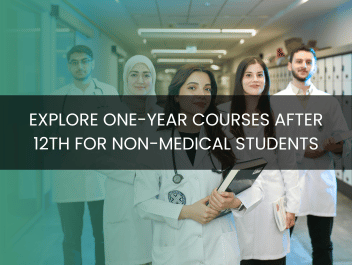





































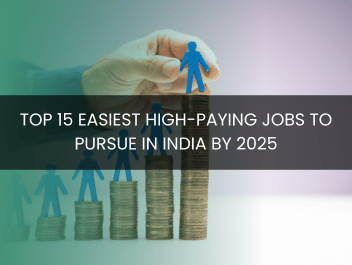







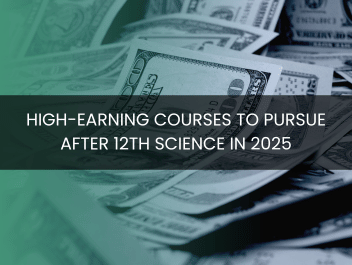



















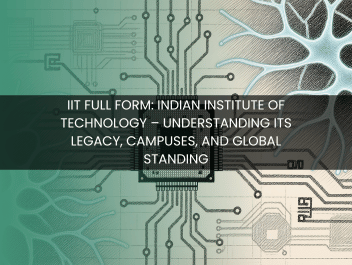








_Thumbnail_.png )
_Thumbnail_.png )











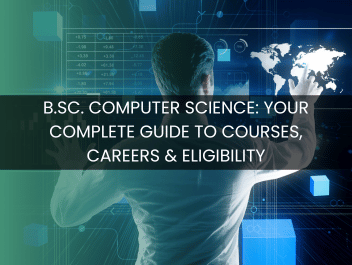


_All_You_Need_to_Know_Thumbnail_.png )






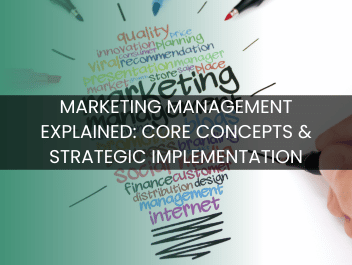

















_Thumbnail_.png )
